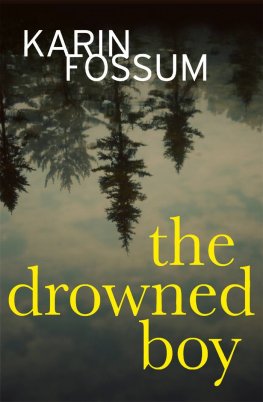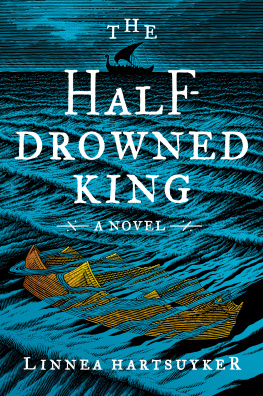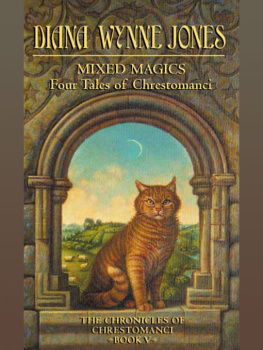Diana Jones - Drowned Ammet
Here you can read online Diana Jones - Drowned Ammet full text of the book (entire story) in english for free. Download pdf and epub, get meaning, cover and reviews about this ebook. genre: Romance novel. Description of the work, (preface) as well as reviews are available. Best literature library LitArk.com created for fans of good reading and offers a wide selection of genres:
Romance novel
Science fiction
Adventure
Detective
Science
History
Home and family
Prose
Art
Politics
Computer
Non-fiction
Religion
Business
Children
Humor
Choose a favorite category and find really read worthwhile books. Enjoy immersion in the world of imagination, feel the emotions of the characters or learn something new for yourself, make an fascinating discovery.

- Book:
- Author:
- Genre:
- Rating:3 / 5
- Favourites:Add to favourites
- Your mark:
- 60
- 1
- 2
- 3
- 4
- 5
: summary, description and annotation
We offer to read an annotation, description, summary or preface (depends on what the author of the book "" wrote himself). If you haven't found the necessary information about the book — write in the comments, we will try to find it.
— read online for free the complete book (whole text) full work
Below is the text of the book, divided by pages. System saving the place of the last page read, allows you to conveniently read the book "" online for free, without having to search again every time where you left off. Put a bookmark, and you can go to the page where you finished reading at any time.
Font size:
Interval:
Bookmark:
Drowned Ammet
Diana Wynne Jones
For my mother
Map by David Cuzic
PART ONE
Free Holanders
1
People may wonder how Mitt came to join in the Holand Sea Festival, carrying a bomb, and what he thought he was doing. Mitt wondered himself by the end.
Mitt was born the day of the Holand Sea Festival, and he was called Alhammitt after his father. Perhaps the first sound Mitt heard as he burst bawling into the world was his parents laughing about both these things.
Well, he took his time, said Mitts father, and chose his day all right. What does this make him? A man of straw, born to be drowned?
Milda, Mitts mother, laughed heartily at this, because the Sea Festival was something of a joke. On that day, every autumn, Hadd, the Earl of Holand, was required by tradition to dress up in outlandish clothes and walk in a procession down to the harbor carrying a life-size dummy made of plaited wheat. The dummy was known as Poor Old Ammet. One of Hadds sons walked after him carrying Poor Old Ammets wife, who was made entirely of fruit, and her name was Libby Beer. The procession that went with them was both noisy and peculiar. When they reached the harbor, they said traditional words and then threw both dummies into the sea. Nobody knew why this was done. To most people in Holand the ceremony was just an excuse to have a holiday, eat sweets, and get drunk. On the other hand, everyone would have thought it horribly unlucky not to have held the Sea Festival.
So Milda, even though she was laughing until her dimple was creased out of existence, bent over the new baby and said, Well, I think its a lucky birthday to have had. Hell grow up a real free soul, just like you you wait! Thats why Im calling him after you.
Then hell be common as dirt, said Mitts father. Just like me. You go into town and shout Alhammitt in the street, and half Holand will come to you. And they both laughed at the thought of the common name they were giving their baby.
Mitts early memories were full of his parents laughter. They were very happy. They had the good luck to rent a smallholding on the Earls land in what was known as the New Flate, only ten miles from the port of Holand. It had been reclaimed from sea marsh by Earl Hadds grandfather and grew lush emerald grass, big vegetables, and corn in narrow yellow stripes between the dikes. Dike End holding was so fertile and the market of Holand so near that Mitts parents had plenty to live on.
Though Earl Hadd was said to be the hardest man in Dalemark, and other farmers in the Flate were always being turned out of doors for not paying their rent, Mitts parents always had just enough money to go round. They laughed. Mitt grew up running carelessly along the paths between the crops and the dikes. It never occurred to anyone that he could drown. When he was two, he taught himself to swim by falling into a dike when his parents were busy. Since no one was there to help him, he had to help himself. He struggled to the bank and got out, and his clothes dried in the stiff breeze as he ran on.
The sound of that breeze was as much part of his early memories as his parents laughter. Apart from the hill where Holand stood, the Flate was flat as a floor. The wind blew straight across from the sea. Sometimes it came storming in, laying the grass over, chopping the sky reflected in the dikes into gray Vs, and hurling the trees sideways so that their leaves showed white. But most days it simply blew, steadily and constantly, so that the dikes never stopped rippling and the leaves of the poplars and alders went rattle-rattle up and down the banks. If the wheat was ripe, it rustled in the wind, stiffly, like straw in a mattress. The constant wind sighed in the grass and hummed in the chimney, and kept the sails of the big windmills always turning, creak-thump, creak-thump, to pump the water to the dikes or grind the flour. Mitt used to laugh at those windmills. It was the way their arms pawed the air.
Then one day, shortly after Mitt had taught himself how to swim, the wind suddenly dropped. It did that sometimes in early summer, but it was the first time in Mitts life that he had known the Flate without wind. The sails of the windmills creaked and stood. The trees stopped moving. There was blue sky in the dikes, and trees upside down. Everything went quiet and unexpectedly warm. Above all, there was suddenly an extraordinary smell. Mitt could not think what was happening. He stood on the bank of the dike nearest the house with his ears tipped to the silence and his nose lifted to the smell. The smell was cow dung and peat and trampled grass, mixed with smoke from the chimney. But that was only in the foreground. Beyond that was the smell of fresh things growingcow parsley, buttercups, a hint of may, and strongest of all, the heavenlike scent of willows budding. While, at the back of it, there and not there, so that Mitt almost missed it, was the faint boisterous bite of the distant sea.
Mitt was too young to think of it as smells, or to realise that the wind had simply stopped. He thought it was a place. It seemed to him that he had got an inkling of somewhere unspeakably beautiful, warm, and peaceful, and he wanted to go there. Yes, it was a land. It was not far off, just beyond somewhere, and it was Mitts very own. He set off at once to find it while he still remembered the way.
He trotted to the end of the dike, crossed the footbridge, and continued trotting, northward and inland. He passed all the places he knew, impatientlythey were obviously not his landand trotted on until his legs ached. Even then he was still in the New Flate, lush and green, with its dikes, poplars, and windmills. Mitt knew his land was different from the Flate, so he was forced to toil on. And after a mile or so, he came out into the Old Flate. Here it was different, all right. The ground was wide and treeless and covered with pinkish marsh plants. In some places, long lines of rushes and green scum showed where there had once been dikes and farms, but now it was all flat and blank. Nothing seemed to be alive there but mosquitoes and plaintive marsh birds. In the wide distance, it was true, there were one or two islands of higher ground with trees and houses on them. The roads to them crossed the pink waste on causeways, raised up like the veins on an old mans hand. Otherwise there was nothing until, away on the edge of the distance, there was what Mitt took for a line of clouds but was in fact the beginning of the land above sea level, where Holand joined Waywold.
Mitt was a trifle daunted. This was not the kind of land he had in mind. His vision of his perfect place faded a little, and he was no longer sure this was quite the way to it. Nevertheless, he set forward bravely into the dismal landscape. He felt he had come too far to turn back now. After a while he thought he saw something moving, out in the marsh. He set his eyes on the movement and waded toward it. It was extremely dangerous. There were snakes in the Old Flate. And if Mitt had walked into one of the scummy pools, he could have been sucked down into it and drowned. Fortunately he had no idea. And even more fortunately the moving things he could see were a troop of the Earls soldiers combing the Flate for a run-away revolutionary.
Mitt could see they were soldiers before long. He stood on a clump of rubbery plants, with the marsh sucking and gobbling around him, and wondered whether he ought to go near them. When people in the New Flate talked about soldiers, they talked as if soldiers were something to be afraid of. There was a causeway quite near Mitt. He wondered if he ought to climb up on it, out of the soldiers way. While he was wondering, a muddy horse heaved itself onto the causeway from the marsh behind it. The young officer on its back reined in and stared at the sight of such a very small boy standing all alone in the middle of the Flate.
Font size:
Interval:
Bookmark:
Similar books «»
Look at similar books to . We have selected literature similar in name and meaning in the hope of providing readers with more options to find new, interesting, not yet read works.
Discussion, reviews of the book and just readers' own opinions. Leave your comments, write what you think about the work, its meaning or the main characters. Specify what exactly you liked and what you didn't like, and why you think so.











